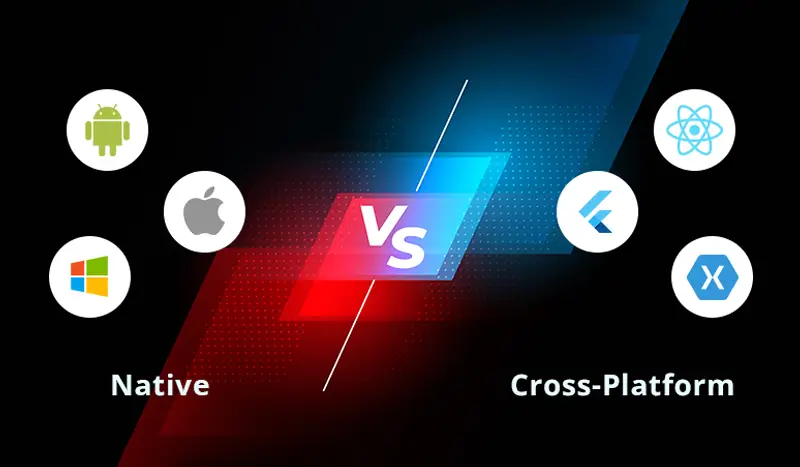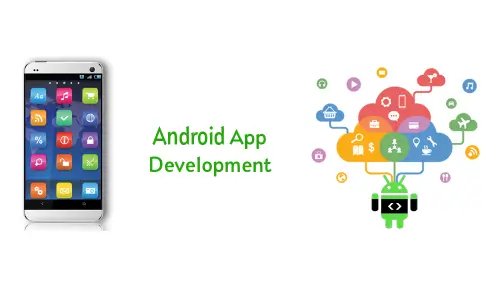The process of developing customized software applications for mobile devices is known as mobile application development. It entails developing installable software packages, installing back-end services, and testing the program on the intended target hardware. A successful mobile app’s design, construction, and deployment are all part of the strategic process of mobile application development.
The process of mobile app development makes the most of all the advantages a mobile device has to offer. This method considers all the constraints imposed by mobile devices and aids companies in striking a balance between cost and usefulness.
Considerations before opting for Mobile Apps Development
There are several significant design choices to make while creating mobile applications. The specific capabilities and characteristics of the platform you design for must be considered. You must take into account the various technological requirements of the devices you intend to build for.
Different screen sizes, touch screen motions, performance levels, Google Play and iOS App Store criteria, and the degree of support you offer for previous, present, and next Android and iOS versions are just a few examples of these parameters.
Mobile Application Development Platforms
IOS and Android are two significant mobile application platforms. Apple’s mobile operating system, known as iOS, was created exclusively for iPhones. Mobile devices made by Google and several OEMs run Android. Despite the fact that the two have a lot of similarities, they each employ a separate software development kit. For example, Despite the fact that the two have a lot of similarities, they each employ a separate software development kit. The leading programming languages for Android, for instance, are Java, Kotlin, C++, C#, BASUC, Lua, etc. The top programming languages for iOS include Swift, Objective-C, React Native, Flutter, and others.
In addition to the platforms for building mobile applications for Android and iOS, there are cross-platform development tools like Apache Cordova, Xamarin, Ionic, Python, Ruby, etc.
Choosing the right Mobile Apps Development technology!
Every platform has incredible abilities, features, and constraints. Therefore, you must plan the application so that it can fully utilize mobile development technologies while also being user-friendly, safe, scalable, and available to as many people as feasible.
It is essential that you spend time understanding many of the mobile technologies available to you. Then, based on your project requirements, choose the correct one.
This will result in a more streamlined development cycle and a much higher-quality product than your expectations.
Native vs Cross-Platform
The first step is to finalise the kind of application you require. It can be either Native applications or cross-platform applications.
Native
Native apps are useful if you want to create for a single platform. This is because you have the opportunity to fully utilize the platform in question. It gives you access to and makes use of a wide range of platform-specific capabilities.
For example, iOS includes unique features like as iMessage, AirDrop, and App offloading, whereas Android has unique features such as customized home screens, expandable storage, and split-screen support. As a result, while developing an app for a certain platform; you have the time and resources to take use of these special capabilities.
Cross-platform
Cross-platform mobile application development, on the other hand, is the process of creating an application that can operate on several mobile platforms using a single code base. A variety of cross-platform mobile app development technologies are available. This allows developers to easily envision, build, and publish a beautiful and functioning application on numerous platforms at the same time. Flutter, React Native, and Xamarin are three of the most popular cross-platform smartphone technologies.
While each of these platforms has its own set of features and benefits, one thing they all have in common is that they allow developers to create cross-platform applications using a single codebase.
Whichever mobile application technology you employ, you must select the correct tools, ones that complement the platform and devices for which you wish to create the application. This way, you’ll have a simpler time making critical design decisions, experimenting with new concepts for your application, and ensuring a flawless formal launch.
To know more about the various tools and technologies used in mobile apps development, please visit our blog page-
https://www.oditeksolutions.com/mobile-app-development-services/
https://www.oditeksolutions.com/mobile-app-development-company/
Ending Thoughts
The demand for portable devices, notably smartphones and tablets, has increased due to the growing popularity of remote work cultures, online shopping, telemedicine, and e-learning, etc. Once more, this has raised the need for mobile apps across all business sectors.
Oditek specializes in developing mobile apps, and our professionals can assist position your app for success from inception to release.
Contact us right away to learn more. Reach out to us today!







